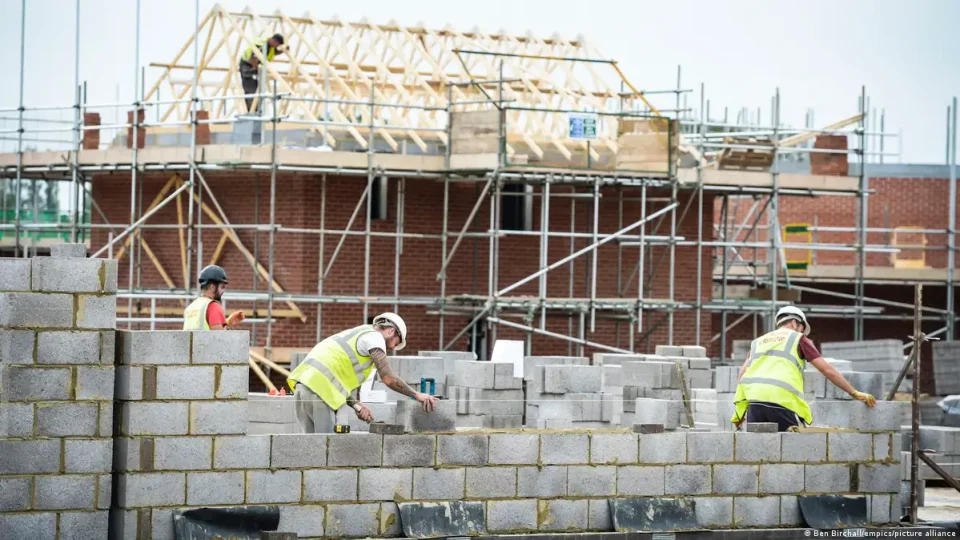FALCON POWERS – The number of new apartments completed annually has hardly changed since 2021, dramatically missing government targets.
Germany’s Federal Statistical Office announced on Thursday that 294,400 new apartments were built in Germany last year, a yearly decline of 0.3%.
This total was far below the state’s target of 400,000 and is bad news for Germany’s struggling property sector.
Over the last few years, investment in German construction has been hindered due to high interest rates, red tape, and elevated energy costs because of the Russia’s war in Ukraine.

Between 2010 and 2020, the number of apartments completed annually rose from 159,800 to 306,400.
Since 2021, growth has been virtually non-existent.
“In the face of rising costs and interest rates on top of a lack of funding for affordable new builds, hardly any new projects can even be discussed aside from subsidised housing construction,” said Axel Gedaschko, President of the GdW, the Federal Association of German Housing and Real Estate Companies.
“This means that the trend in building completions for the coming years is clearly pointing in one direction: downwards,” Gedaschko added.
Pekka Sagner, a housing and real estate expert at the German Economic Institute, agreed that housing shortages are set to “become more acute in the near future”.

There has been a significant decline in construction permits issued since 2022, he told Euronews Business, and the effect of this will begin to show this year at the earliest.
“This will likely lead to substantial increases in prices and make it even more difficult for households to find suitable accommodation,” he explained.
The authorities approved only 259,600 constructions in 2023, the lowest level since 2012.
Separate data has shown that the number of permits continued to fall in the first quarter of 2024.
Thursday’s construction figures include both construction completions for new buildings and construction work on existing buildings, as well as apartments in residential and non-residential properties. All the completions counted in the figures are living spaces, rather than commercial properties.
EURONEWS


